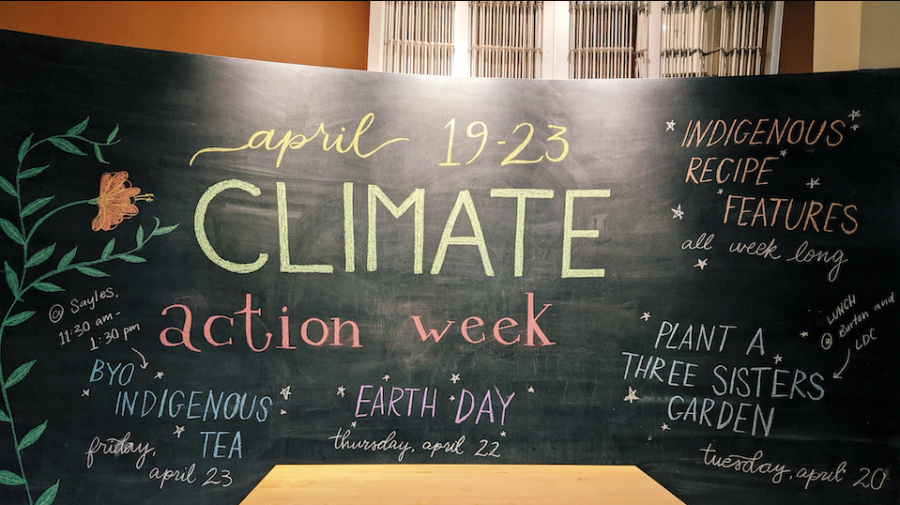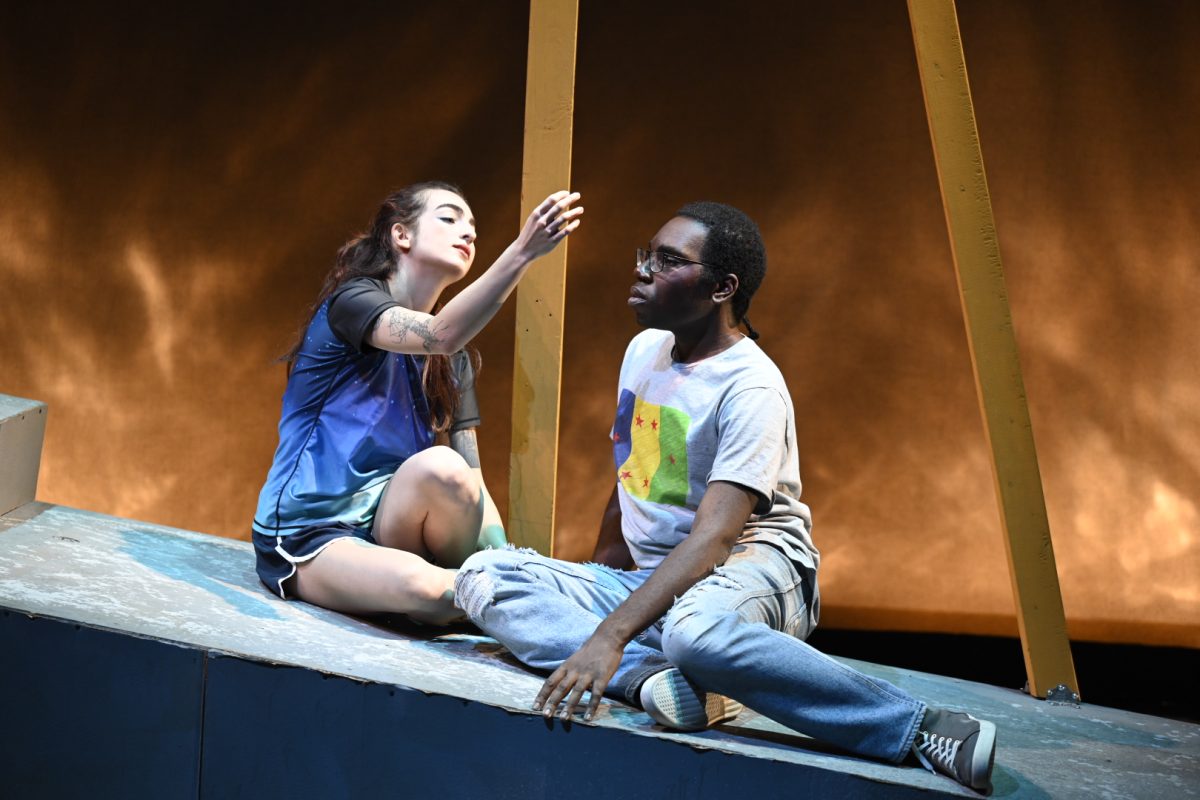Climate Action Week has been put on by the Carleton Sustainability Office for multiple years, but as everything on campus is forced to adjust to an online or hybrid environment, Climate Action Week is no exception. An array of online and in-person events were hosted the week of April 18-24 by the Sustainability Office in conjunction with other offices and organizations on campus.
Climate Action Week is no doubt about climate change, but Simran Kadam ’23, a Sustainability Assistant on the Community Outreach Team, reminds us that “climate action is more than just addressing climate change. It’s about combating injustice in all forms, including colonization.”
The events and activities hosted around campus last week reflected that. Education about the history and traditions of Wahpekute and other Bands of the Dakota Nation, on whose land Carleton stands, were incorporated into multiple events.
The decision to honor Indigenous culture and traditions during Climate Action Week is an important and timely one. Kadam explained the urgency of these themes in connection to Line 3, a proposed tar sands pipeline that will run through Indigenous lands in Northern Minnesota.
“Many Carleton students have been involved in protesting against its installation,” Kadam said. “We wanted to harness this energy and draw attention to the people who would be most impacted by this pipeline, and learn from the stories and teachings of these Indigenous groups.”
She continued, “Carleton is taking many steps towards acknowledging the ongoing harm done against Indigenous peoples, through actions such as a land acknowledgement and an upcoming elder in residence program. The Sustainability Office wanted to build on this work by appreciating and highlighting certain Indigenous practices.”
The three main Climate Action Week events highlighting Indigenous practices and traditions were the Three Sisters seed-planting event in LDC and Burton on April 20, a make-your-own-tea event in Sayles on April 23 and the incorporation of Indigenous recipes in the dining halls throughout the week. Prior to these events, native organizations were consulted to arrange the best way in which to share this information with the Carleton community.
Kadam explained that “the dining hall worked in collaboration with Sioux Chef and NaTIFs, two native organizations based in the Twin Cities, to feature Indigenous meals during lunch in the dining halls.”
“Furthermore,” she added, “we reached out to Dreams of Wild Health in Minneapolis to receive permission to share the story of the Three Sisters as well as Indigenous cultural uses of certain native herbs.”
The story of the Three Sisters was the basis of the seed-planting event that occurred in LDC and Burton on April 20. Students were invited to plant either a bush bean, a pole bean or a squash; they could take their plotted seed and care for it until the end of the term.
The sprouted seeds will be collected at the end of term and planted in the Carleton Farm over the summer. Come fall, the squash, beans and corn will be harvested and the Three Sisters will be celebrated.
The Three Sisters are squash, corn and beans in the agricultural practice of many Indigenous groups throughout North and Central America. In a 2018 PBS segment, Navajo freelance journalist Andi Murphy described them as “the Holy Trinity of some Indigenous cultures, a trifecta of agricultural sustainability… the Three Sisters are an important facet of Indigenous culture and foodways.”
On Friday, an event highlighting Indigenous teas and their traditional, herbal and medicinal uses took place in Sayles. The three teas offered were raspberry, rose and mint; these teas are not only said to possess medicinal value, but they are also native to the Carleton College Arboretum.
In addition to these events that incorporate and honor native culture, the Carleton Sustainability Office has worked with other offices to facilitate Climate Action Week this year.
Kadam said she appreciates how working with other offices on campus can “highlight the intersectionality of sustainability-focused work and how anyone can get involved.”
For example, Kadam said, the Sexual Misconduct Prevention and Response Office “did a social media education campaign focused on sexual violence and pipelines.”
In addition, she said, “Disability Services hosted a documentary and discussion on the overlap of disability and climate action.”
Lots of work was put into Climate Action Week and organizing the different events across campus. Kadam said she hopes that the students who engage with the events will feel inspired and learn about how to incorporate sustainability into their everyday lives and passions.
She reminded students that Climate Action Week is not the only time to get involved with sustainability on campus; the Sustainability Office hosts similar events year-round.













